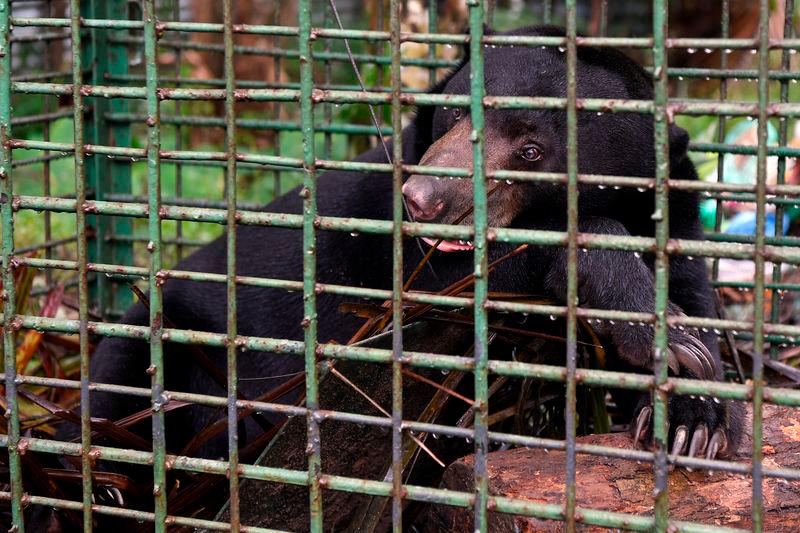PETALING JAYA: Malaysia continues to suffer from deplorable enforcement despite more than 1,000 wildlife parts, including 397 bear paws from several endangered species, being seized at a house near the Taman Negara in Pahang last November.
Elizabeth John, the communications manager for Traffic, an NGO whose mission is to ensure that the trade in wild species is legal and sustainable for the sake of the planet and people, is outraged.
She said while a stronger Wildlife Conservation Act was approved in 2022, with higher penalties of up to RM1 million and a maximum jail term of 15 years for offences involving trafficking, the challenge lies in enforcing it.
“Although a series of revisions to strengthen the Act was approved, including offences such as keeping, hunting and smuggling wildlife, not all the revisions are currently in effect.”
Elizabeth said the Natural Resources and Environmental Sustainability Ministry reported that a total of 490 offenders were arrested by wildlife authorities in ramped-up enforcement operations from 2019 to April this year.
However, based on Traffic’s data, there have been at least 28 known seizure incidents involving wild animals within a 30km radius of Taman Negara in the past five years.
This resulted in the confiscation of 499 animal parts, with pangolins, leopards and bears being the top three most seized species.
Elizabeth said Malaysia is one of the most mega-diverse countries in the world, with more than 15,000 species of vascular plants and 152,000 species of animal life.
However, the rich biodiversity has turned the nation into a hotbed for poaching, wildlife trafficking and a hub for international trade.
“Everything from pangolins and bears to our tigers, sambar deers and birds are being hunted, and Malaysia is a popular supply market.”
She said the specific areas needing more attention and resources include ports, airports and the logistics industry, which should take a more proactive role in combating wildlife crime through their facilities and services.
There were 654 cases involving the illegal online sale of exotic wildlife between 2020 and 2023 through various social media platforms, as reported by the Wildlife and National Parks Department.
She said courier companies should adopt policies and improve their processes to enhance the detection of wildlife trafficking in packages.
“More innovative efforts by the Malaysian Communications and Multimedia Commission in collaboration with consumer groups should be considered to combat illegal online trade and address the use of packages for wildlife trafficking.”
Universiti Putra Malaysia Wildlife Management senior lecturer Dr Tengku Rinalfi Putra Tengku Azizan said there is always demand for
exotic and wildlife species in the global market.
“Pet ownership has increased in recent years, and the trend of owning exotic and wild animals is also rising.
“The advances in animal husbandry and propagation technologies have enabled wealthy individuals to exploit illegal markets, allowing them to easily move, breed, access and trade in wildlife online.”
Tengku Rinalfi said human psychology plays a significant role, as many people seek the personal satisfaction of owning and displaying unique animals.
He said as it becomes more normal, there will be an increased risk of spreading zoonotic diseases, propagating invasive species and physically harming humans and animals.
“Public awareness on the importance of wildlife protection
laws remains very low as many people are either unaware of the existence of laws or do not fully understand their significance.
“Effective awareness campaigns are crucial to educate the public on the consequences of wildlife crime for biodiversity and human health, and to encourage responsible behaviour that supports conservation efforts.”









